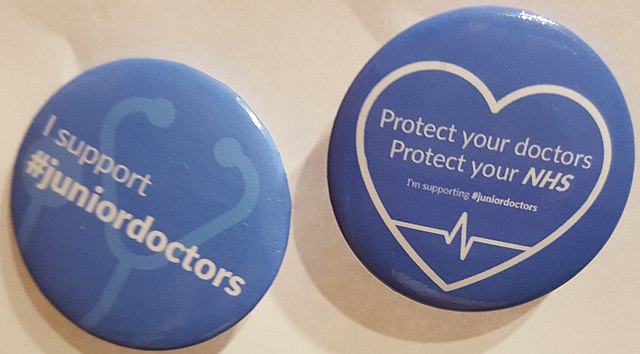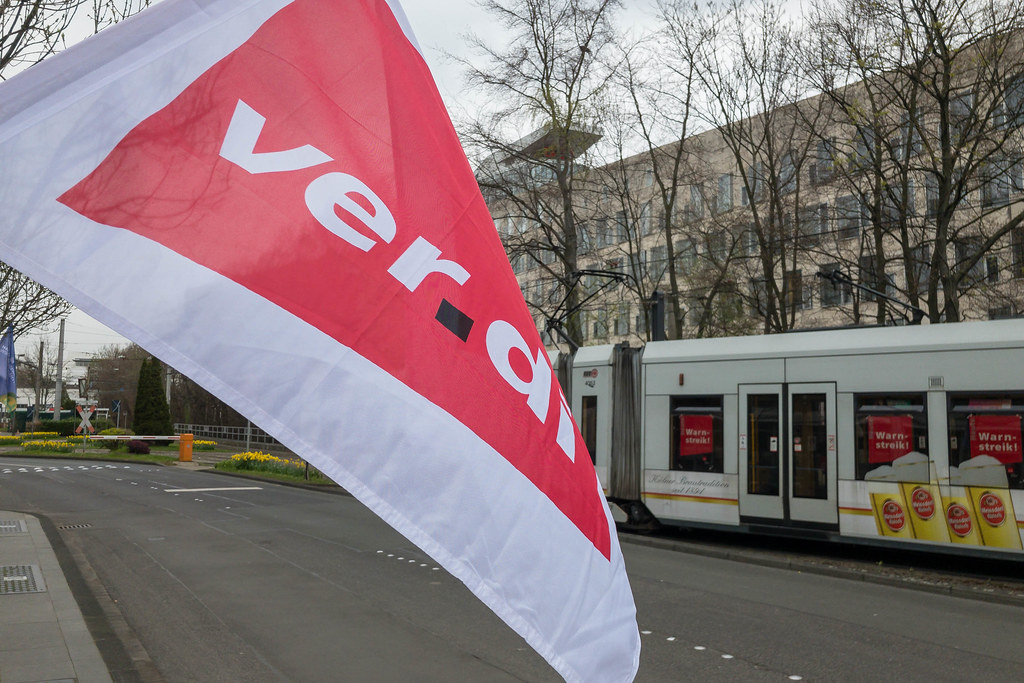For the second time in a decade, junior doctors, represented by the British Medical Association (BMA), are on strike in England. The current minister of finance, Jeremy Hunt, was the minister for health during the previous strikes in 2016. Despite a historic strike, the first since the 1975, the outcome in 2016 was a bitter disappointment. The negotiated contract that was put to a vote of junior doctors was rejected, leading the chair of the junior doctors committee, Dr Johann Malawana, to resign. Hunt imposed the contract anyway and the strike was as good as broken. Concessions were won a few years later in renegotiations opened in 2018 and concluded in 2019.
These included a below inflation 8.2% pay rise spread over 4 years from 2020, and changes to working patterns. The new contract was accepted by 82% of the members who voted. However, the turnout was just 28%, a sign of a demoralised workforce on the eve of the Covid-19 pandemic. Consequently, the nature of this strike, based on a series of discussions with junior doctors who graduated in 2020 or 2021, feels very different to the central issues of the strikes in 2016.
The title of junior doctor can be misleading, suggesting a lack of experience, but this designation includes graduate doctors completing their 2-year foundation course or experienced doctors nearing the level of consultant, who require 6-8 uninterrupted years of training. Collectively, they are the engine room of healthcare delivery in the NHS. Approximately 50,000 of them have walked out to achieve their demands.
Harry Gething, a BMA representative active in organising the strike ballot, explained the motivations behind the strike. Stating the real-terms pay cut experienced by junior doctors of 26% since 2008, he emphasised that an extraordinary 79% of doctors polled by the BMA are considering leaving their career. He mentioned colleagues leaving to countries such as New Zealand and Australia, which offer salaries of £9,000-18,000 more per annum along with better working conditions. In spite of the alarming risk that such an exodus of highly trained professionals poses to the NHS, Gething reports that health minister Steve Barclay refused to discuss pay with BMA negotiators.
The previous strike focused less on pay and more on working conditions and compensation for working unsociable hours – emphasising the risks to patient-centred care. The current dispute pivots around pay. Junior doctors are demanding a 35% pay increase to bring their real terms pay in line with the levels in 2008. The inflation spike in the aftermath of the Covid lockdowns accelerated pay erosion for doctors just as the demands of their profession increased exponentially. The number is large because restoring a 26% loss of real-terms pay requires an increase of just above one third from the current levels, a matter of simple mathematics, but one that required explaining to the national media which asked hostile questions about the size of the pay demands.
Beneath the surface, the situation seems understated, and the current strike appears to be less of an industrial dispute and more of a heroic last stand to preserve the basic integrity of the NHS. Christine*, a junior doctor practicing in Cornwall, echoes the psychological exhaustion of doctors. Her fellow foundation year doctors speak of feeling intimidated, exhausted, and uncared for by the NHS. Feeling pincered by worsening conditions and declining pay, her hourly pay is less than the cost of a Domino’s pizza. Christine speaks of working 8 hours at a stretch without a break, hiding in bathrooms crying during shifts, and generalised burnout. In spite of these conditions, she expressed concern for patients in accident & emergency departments waiting over 8 hours to be seen by a doctor.
I ask her what it would take to keep her working in the NHS. Her response is emblematic of the crisis of conscience faced by all her colleagues: “I am too exhausted and resentful to carry on in the NHS at the moment. When my contract finishes in August I plan to stay on as a locum for a few months before fleeing the country…” It is disheartening to hear of once energetic medical students, completing a demanding education over a minimum of 5 years, then feeling the need to flee within 2 years of practicing.
The crisis is not exclusive to England, it is simply most acute in the only constituent of the UK that lacks a devolved parliament to manage it without being aggravated by the agenda of Westminster. Conditions in Wales and Scotland are not dramatically better; the bleeding is simply better managed, and the workforce’s suffering spread more thinly. The absence of strikes does not imply an absence of comparably severe problems. Natalia*, a junior doctor who practiced in Wales for three years before quitting to take a job in the private sector, speaks of burnout, financial desperation, and PTSD.
Within a year of graduating, she was deciding which patients to allocate oxygen to because of the shortages experienced in the pandemic. Making life and death decisions working in intensive therapy units (ITUs) so soon after graduating left her psychologically traumatised. But this was not all. Unable to afford the costs of travelling to work, living, and the fees doctors are obligated to pay for further training courses, she once resorted to gambling to keep up with costs; a choice she said she would never make again but gave her a temporary reprieve from the financial pressures she was under. Her other option was to work relentless hours in overtime, averaging over 70 hours a week to earn a net income of under £2,500 – below £9 an hour. The final straw in her ordeal was when she was refused accommodations on account of disability when applying for specialist training. Her career stalled, her mind exhausted, she decided to leave the profession.
In all these accounts, it is striking how apologetic doctors are about asking for a pay increase or even making simple requests such as being able to take regular breaks, not working consecutive weekends, and the right to give input on their scheduling. Perhaps aware of the social prestige of their profession and their officer-like position within the NHS – unlike soldierly nurses who command widespread public affection due to the regularity of their contact with patients – the junior doctors I spoke to for this report appear defensive about asserting their demands. The instinct remains to inflect their demands in terms of patient safety and long-term viability of the NHS as a treasured national institution.
Government ministers, their spokespeople, and media commentators constantly fearmonger about the impact of strikes on patients, insinuating that doctors are holding patients hostage. In reality, it is the government which is holding both patients and the good conscience of doctors hostage, and ultimately succeeding in immiserating the entire profession. In England, this emotional exploitation has reached a limit, and the strikes are a parting gift for the generation of doctors which might succeed them should the strikes achieve their demands. For the current generation of junior doctors, beneath the fire of indignation, resignation is on the verge of prevailing.
*Names changed to protect privacy.




